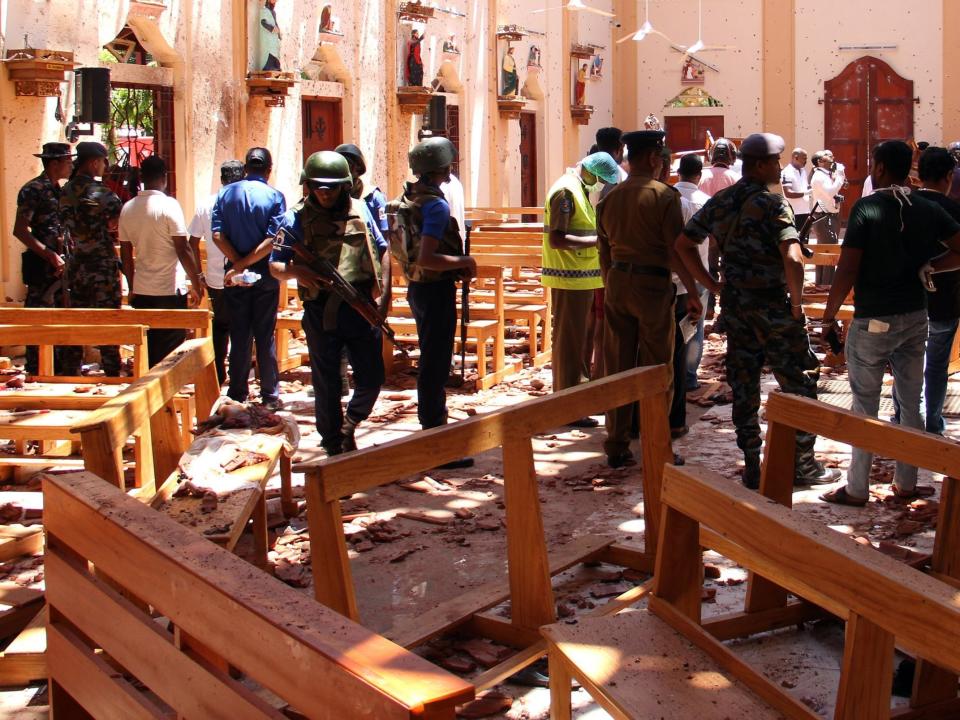Amid the tragic attacks in Sri Lanka, the region's growing economy offers much needed hope
The attacks in the churches in Sri Lanka shock us all. For Christians, the great uplifting festival of Easter has been scarred by these dreadful events. For everyone they are a dreadful reminder that people with extreme views can do unspeakable damage to other human beings. Nothing any of us can say can take away the horror of it all.
And yet it’s worth noting that in many ways Sri Lanka is a success story. We need to remind ourselves of that. The country experienced 30 years of civil war, ending in 2009. In the decade since then there have been huge advances not just in living standards but also in social and economic opportunities.
There is a measured report from the World Bank which notes that growth averaged 5.8 per cent between 2009 and 2017. The proportion of people living in poverty has fallen from 15 per cent to 4 per cent. This is now a middle-income country, rather than a poor one, and one with great prospects.
Of course there are problems. Debts are high and spending on education and healthcare needs to rise. But like the rest of south Asia, growth is bringing social as well as economic benefits.
There is a wider story here and it needs to be told. The past decade has seen huge economic progress across the emerging world. India is now the fastest-growing large economy on the planet. Africa is the fastest-growing continent. According to the IMF this year Ghana is expected to be the fastest-growing country in the world. Over three or four years Ethiopia may be top of the league table.
We read and indeed write about China’s extraordinary progress over the past generation, and that explosive growth started with the economic reforms of Deng Xiaoping from 1978 onwards. But we tend to forget that another more recent economic revolution has swept across almost all the emerging world, a revolution that is continuing right now. Sri Lanka is part of that.
We are too close to all this to be able to assess what particular forces are driving this progress. In any case, different countries have different economic structures, different cultures, and different political systems. But simply removing blockages to growth – bureaucracy, corruption, conflict – is clearly able to achieve a lot. Infrastructural investment is also crucial, which is one of the reasons why sub-Saharan African economic performance has improved so much. China has put a lot of investment into the continent. It may have done so for its own purposes, but anyone who has driven on the new African roads will thank China for that.
I think too that there has been what economists dub a “demonstration effect”. Because one part of the emerging world, in this case China, has been so successful, other countries that were a generation ago in the same position as China have seen what they too might achieve. I suspect that this is much of the reason why India has taken off, and is now growing faster even than China. And because Indian growth is so strong, that has shown the rest of the sub-continent that it too can boom.
Of course economic growth has brought problems, notably environmental ones. Wealth within the emerging world is too narrowly shared, as indeed it is in the developed world. And let’s always remember that economic growth is only a means to an end: a better and more balanced life for every member of society. But as Sri Lanka has demonstrated, growing wealth has helped the country achieve real social progress.
That must surely be the hope. The 22 million people of Sri Lanka have potentially a golden future. Nothing should allow that to be snatched away from them.

 Yahoo News
Yahoo News 

